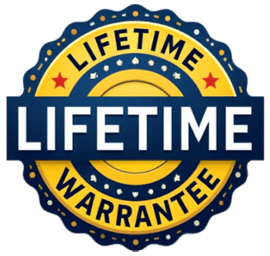

Why Southwest Florida Residents Rely on Water Treatment Equipment
Southwest Florida’s relationship with water is complex and multifaceted. From Tampa to Naples, Sarasota to St. Petersburg, residents across this vibrant region face unique water quality challenges that have led to widespread adoption of water treatment solutions. The prevalence of water filtration systems throughout these communities isn’t merely a trend—it’s a necessity born from geographical, environmental, and infrastructure realities that impact daily life in profound ways.
When you turn on a tap in Southwest Florida, what flows out is far from the pristine, crystal-clear water many envision. Instead, residents contend with hard water laden with minerals, potential contaminants from various sources, and treatment chemicals that, while ensuring safety, often compromise taste and comfort. This reality has transformed water treatment equipment from a luxury into an essential component of Southwest Florida homes.
The journey to understanding why so many Southwest Florida residents invest in water treatment systems begins with recognizing the region’s distinctive water profile. From the limestone-rich aquifers that supply groundwater to the municipal treatment processes that prepare it for consumption, multiple factors converge to create water quality challenges that affect everything from household appliances to personal health and comfort.
As hurricanes like Helene and Milton have recently demonstrated, water security and quality remain top priorities for residents across the region. The peace of mind that comes from knowing your water is clean, safe, and optimized for your home’s needs has driven thousands of homeowners to seek solutions that address Southwest Florida’s specific water challenges.
Southwest Florida’s Unique Water Challenges
The foundation of Southwest Florida’s water quality issues lies in its distinctive geology. The region sits atop a complex system of aquifers, with the Floridan Aquifer serving as one of the primary sources of groundwater. These underground reservoirs naturally filter water through layers of limestone and other mineral-rich sediments, imparting significant hardness to the water before it ever reaches treatment facilities or private wells.
This geological reality means that water in Southwest Florida typically contains elevated levels of calcium and magnesium—the primary minerals that constitute “hard water.” While these minerals aren’t harmful to human health, they create numerous household challenges, from scale buildup in pipes and appliances to soap scum in bathrooms and reduced cleaning efficiency. The limestone foundation of the region ensures that hard water remains a persistent issue regardless of whether residents receive municipal water or rely on private wells.
Beyond natural mineral content, Southwest Florida’s water faces additional challenges from both human activity and environmental factors. Agricultural runoff can introduce fertilizers, pesticides, and other chemicals into groundwater supplies. Urban development increases impervious surfaces, leading to stormwater runoff that carries pollutants into water bodies that may eventually feed into the water supply. Even natural events like red tide blooms can impact coastal water quality, creating concerns about what might find its way into drinking water.
Municipal water suppliers work diligently to address these challenges, employing treatment processes that ensure water meets safety standards. However, these treatments often involve adding chemicals like chlorine or chloramine to disinfect the water. While effective at eliminating harmful bacteria, these additives can impart unpleasant tastes and odors, and some residents have concerns about their long-term health effects. This creates a situation where water may be technically safe but aesthetically unpleasing, driving many to seek additional filtration solutions.
The Hard Water Predicament
Hard water represents perhaps the most universal water quality challenge for Southwest Florida residents. The effects of hard water extend far beyond the occasional spotted glass or filmy residue on shower doors—they impact virtually every aspect of water use in the home, creating both immediate inconveniences and long-term costs that motivate homeowners to seek solutions.
When hard water flows through plumbing systems, it gradually deposits minerals along pipe interiors, reducing water flow and pressure over time. These mineral deposits can accumulate in water heaters, reducing their efficiency and shortening their lifespan. Appliances that use water, from dishwashers to coffee makers, can develop scale buildup that impairs their function and eventually leads to premature failure. For homeowners, this translates to higher utility bills, increased maintenance costs, and more frequent appliance replacements—expenses that quickly outweigh the investment in water treatment equipment.
The effects of hard water extend to daily household activities as well. Laundry washed in hard water often emerges feeling stiff and looking dull, as mineral content prevents detergent from dissolving completely and can bind to fabric fibers. Dishes may display spots or film despite thorough washing. Shower heads and faucets develop crusty white deposits that restrict water flow and detract from bathroom aesthetics. These daily frustrations compound over time, diminishing quality of life and creating ongoing maintenance challenges.
Perhaps most noticeable to many residents are the personal effects of hard water. When used for bathing, hard water can leave skin feeling dry and itchy as soap combines with minerals to form a residue that remains on the skin. Hair washed in hard water may become dull, brittle, and difficult to manage. For individuals with sensitive skin conditions like eczema, hard water can exacerbate symptoms and cause discomfort. These personal impacts drive many Southwest Florida residents to seek water softening solutions that improve their daily comfort and well-being.
Municipal Water Treatment Concerns
While municipal water suppliers throughout Southwest Florida work diligently to provide safe drinking water, many residents have concerns about the treatment processes used and their potential impacts on water quality. Understanding these concerns helps explain why so many homeowners opt for additional filtration even when their water meets all regulatory standards.
Municipal water treatment typically involves multiple steps designed to remove contaminants and ensure safety. These often include coagulation and flocculation to remove particles, sedimentation, filtration, and disinfection—usually with chlorine or chloramine. While these processes effectively eliminate harmful bacteria and many contaminants, they can introduce their own issues. Chlorine, while necessary for disinfection, creates byproducts when it reacts with organic matter in water. Some residents worry about potential long-term health effects from these disinfection byproducts, despite levels being regulated and monitored.
The infrastructure that delivers municipal water presents additional concerns. Aging pipes in some communities may introduce contaminants like lead or copper through corrosion, particularly in older neighborhoods. While water leaves treatment facilities meeting all standards, what arrives at individual homes may vary based on the condition of delivery infrastructure. This variability creates uncertainty that motivates many residents to take water quality into their own hands through home treatment systems.
Recent events have heightened awareness of municipal water vulnerabilities. Hurricanes and severe storms can compromise water treatment and delivery systems, leading to boil water advisories and temporary quality issues. The increasing frequency and intensity of such events in Southwest Florida has prompted many homeowners to install treatment systems as a form of resilience planning, ensuring they maintain access to clean water even during infrastructure disruptions.
Well Water Considerations
For many Southwest Florida residents, particularly those in less densely populated areas like North Port, Riverview, and rural communities surrounding Tampa and Naples, private wells provide the primary water source. While well water offers independence from municipal systems, it comes with its own set of quality challenges that frequently necessitate treatment equipment.
Well water in Southwest Florida typically draws from the surficial aquifer system rather than the deeper Floridan aquifer used in other parts of the state. This shallower source is more vulnerable to contamination from surface activities and environmental factors. Agricultural runoff, septic system leaching, and even natural soil composition can introduce contaminants ranging from nitrates to bacteria. Without the benefit of municipal treatment processes, well owners bear full responsibility for ensuring their water’s safety and quality.
Two particularly common issues plague well water in the region: iron contamination and hydrogen sulfide. Iron in well water creates distinctive orange-red stains on fixtures, laundry, and anything else the water contacts regularly. These stains prove extremely difficult to remove and can permanently damage porcelain, clothing, and appliances. Hydrogen sulfide gas, produced by certain bacteria in well systems, creates the notorious “rotten egg” smell that makes water unpleasant for drinking, cooking, or bathing. The combination of these issues makes untreated well water practically unusable for many household purposes.
Well water quality can also change over time as aquifer conditions shift, nearby land uses evolve, or well components age. A well that initially produced acceptable water may develop quality issues years later, requiring owners to implement treatment solutions they hadn’t originally anticipated. The unpredictability of well water quality, combined with the absence of regular monitoring provided by municipal systems, leads many well owners to install comprehensive treatment systems as a precautionary measure.
Health and Safety Motivations
Beyond practical considerations like appliance protection and aesthetic improvements, health and safety concerns drive many Southwest Florida residents to invest in water treatment equipment. While municipal water meets regulatory standards and undergoes regular testing, many homeowners seek additional assurance through home filtration systems.
Recent high-profile water contamination cases across the country have heightened awareness about potential drinking water issues. While Southwest Florida hasn’t experienced major crises like those seen in some other regions, these national stories have increased general concern about water quality and safety. Parents of young children, in particular, often cite peace of mind as a primary motivation for installing water treatment systems, wanting to ensure their families have the purest water possible.
Specific contaminants of concern vary across the region. In coastal areas, saltwater intrusion into aquifers can increase sodium levels in drinking water—a potential concern for residents with certain health conditions. Agricultural areas may worry about pesticide and fertilizer runoff. Urban areas might focus on industrial contaminants or disinfection byproducts. Water treatment systems allow residents to address their specific local concerns rather than accepting a one-size-fits-all approach to water quality.
For residents with specific health conditions or sensitivities, water treatment becomes even more important. Those with compromised immune systems may require additional filtration to remove potential pathogens. Individuals with chemical sensitivities often report improvements when chlorine and other treatment chemicals are removed from their water. The ability to customize water quality to individual health needs represents a powerful motivation for many Southwest Florida households.
The Rise of Reverse Osmosis Systems
Among the various water treatment options available, reverse osmosis systems have gained particular popularity throughout Southwest Florida. These sophisticated filtration systems use a semi-permeable membrane to remove impurities at the molecular level, providing exceptionally clean drinking water that addresses many regional concerns simultaneously.
Reverse osmosis technology excels at removing a broad spectrum of contaminants, including dissolved solids, heavy metals, chlorine, and even some bacteria and viruses. This comprehensive filtration capability makes it well-suited to Southwest Florida’s diverse water challenges. Whether dealing with hard municipal water in Tampa, potential agricultural contaminants near Naples, or saltwater intrusion concerns in coastal Sarasota, reverse osmosis provides a reliable solution that produces consistently high-quality drinking water.
The taste improvement offered by reverse osmosis filtration represents a significant factor in its popularity. By removing chlorine, dissolved minerals, and other substances that affect flavor, these systems transform ordinary tap water into something comparable to premium bottled water. For many residents, this taste enhancement alone justifies the investment, particularly when calculated against the cost of purchasing bottled water over time.
Companies like Aqua Pure Solutions have helped drive adoption by offering reverse osmosis systems specifically configured for Southwest Florida’s water conditions. These systems typically include multiple filtration stages to address regional water challenges, with options for additional components to target specific local concerns. The availability of professionally installed, regionally optimized systems has made reverse osmosis technology accessible to a broader range of homeowners throughout the area.
